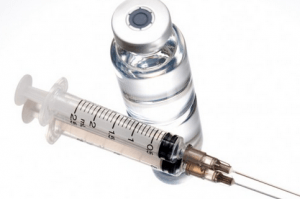Ghana to start first-ever Lassa fever vaccine trials in humans
 The first-ever trial of a Lassa fever vaccine on the human population in Ghana under a clinical study is start as soon as the appropriate approvals are given.
The first-ever trial of a Lassa fever vaccine on the human population in Ghana under a clinical study is start as soon as the appropriate approvals are given.
The vaccine, which has already undergone animal studies, is to be evaluated in a limited number of people under a phase 1 study at the Navrongo Health Research Centre (NHRC) in the Upper East region.
The primary purpose of the study is to evaluate the safety of the vaccine in human beings before it proceeds to further clinical studies.
According to Dr. Nana Akosua Ansah, head of the clinical science department of the NHRC, the centre is waiting for ethical clearance from the Food and Drugs Authority.
Speaking to a group of journalists on a visit to the NHRC, Dr. Ansah said study participants for the studies have not yet been recruited for the studies due to the fact that approval for the studies is still pending.
The journalists are on a tour of the NHRC as part of a trip organised by the NHRC in collaboration with the African Media and Malaria Research Network (AMMREN), to expose them to the research activities of NHRC as part of a media advocacy to empower the media to promote health research findings in Ghana with a particular focus on the NHRC.
The Lassa fever clinical study is just one of the many research activities that the NHRC is embarking on to help generate sufficient and reliable data on the Lassa fever disease.
Lassa fever is an acute viral haemorrhagic illness of 2-21 days duration that occurs in West Africa and can be life-threatening.
According to an article in the Ghana Medical Journal published in 2012, the first two laboratory confirmed cases of Lassa fever in Ghana occurred in the Ashanti Region and were detected in October and December, 2011.
It states that humans become infected through aerosols, direct contact with urine or droppings of infected rodents or direct contact with blood, pharyngeal secretions, urine and other body secretions of an infected person.
It describes the symptoms as shock, seizures, disorientation, and coma may be seen in the late stages.
“Deafness occurs in 25 per cent of patients but half recover some function after 1–3 months. Transient hair loss and gait disturbance may occur during recovery, and. About 80 per cent of Lassa fever infections are mild or asymptomatic. The overall case fatality rate (CFR) is reported as 1 per cent; however CFR among patients hospitalized for Lassa fever is about 20 per cent.
The NHRC is also expected to conclude its phase 4 studies into the RTS,S malaria vaccine in the next couple of years to generate further data on the vaccine.
Already the World Health Organisation has given massive endorsement to the pilot studies on the malaria vaccine based on data that has so far come in from the pilot studies in Ghana, Malawi and Kenya.
The phase 4 studies, which is an additional trial to the malaria pilot studies is to help in further evaluating how the vaccine is faring now that it is in use and to seek for more information on the vaccine to help in further strengthening evidence-based policies on malaria.
The NHRC has over the years been contributing to health policy formulation and has provided various social and health research information with over a 100 publications and policy briefs to its credit and it has further contributed to academic work in and outside Ghana.
By Eunice Menka
Copyright ©2021 by NewsBridge Africa
All rights reserved. This article or any portion thereof may not be reproduced or used in any manner whatsoever without the express written permission of the publisher except for the use of brief quotations in reviews.
